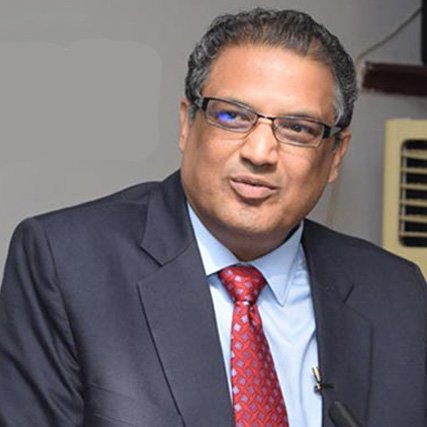About the 27th Amendment, first whispers, then rumors, and now open announcements have been heard.
To understand revolutionary changes in politics, one has to take help from history and political science.
The word “Raj Neeti” has been presented in a negative sense by Bollywood, whereas its literal meaning is the way of running the state, that is, statecraft.
Centuries ago, Chanakya Kautilya, born in Taxila, wrote “Arthashastra” and created methods for running the state and politics.
Eighteen hundred years after Chanakya, Machiavelli wrote “The Prince” and explained the principles of statecraft and political conduct with living examples.
Both Chanakya and Machiavelli, in their systems of governance, consider “saying something and doing something else” as the first brick of politics.
According to their interpretation, there are two main kinds of statecraft.
One is called Gupt Rajneeti or Covert statecraft, while the other is Dikhat Rajneeti or Overt statecraft.
Gupt politics or Rajneeti means moving toward one’s objectives without declaring them; in common understanding, it is also called secret or silent statecraft.
This was Chanakya’s favorite style of governance, whereas Overt statecraft or transparent politics is the one in which everything is told to the public, made understandable to them, and done with their consent this is called visible or Dikhat Rajneeti.
Chanakya Kautilya and Machiavelli have many admirers in the world, and many famous rulers considered acting upon their ideas essential for success.
But on the other hand, enlightened and democratic thinkers term the politics of Chanakya and Machiavelli as cunningness and deceit, holding them responsible for giving continuity to systems of oppression and tyranny.
After the French Revolution and the political and intellectual changes in the world, transparency, overt politics, and non-violence have been preferred over Chanakyan politics.
In the politics of Chanakya or Machiavelli, the ruler’s fear and awe upon the state is necessary.
Machiavelli has written that if someone’s father is killed, reconciliation is possible, but if someone’s land or property is taken away, reconciliation cannot happen.
In the modern age, most politicians of the world claim that they practice Dikhat Rajneeti (overt politics), but the reality is the opposite.
Even today, in the entire world, Gupt Rajneeti prevails.
Freedoms are limited, people are subdued, there is a web of spies, a crowd of conspiracies, trickery is permissible against enemies, and every oppression is allowed for the sake of power.
This was exactly Chanakya Kautilya’s Gupt Rajneeti.
Kautilya grew up in Taxila, adjacent to Rawalpindi and Islamabad, and tested his Chanakyan philosophy in his own lifetime.
In his life, Chanakya caused the defeat of the Nanda rulers, because once the Nandas had misbehaved with him.
Chanakya never forgot that insult.
To counter the powerful Nanda empire, he first searched for a competent candidate, Chandragupta Maurya, then trained him and sent him into the field.
He ended the Nanda rulers and their politics; thus, the foundation of the powerful Mauryan empire was laid.
Chanakya created a strong narrative against the Greek rulers left behind in India after Alexander the Great; instead of attacking them with the state’s army, he provoked small tribes into rebellion against them, harassed them, spread a network of spies against them.
Monks, ascetics, and traders all became agents of the Mauryan ruler.
So much so that the Greek ruler Seleucus, along with his army, left India and returned to Greece.
Chanakya was the only philosopher who achieved material victories through his Gupt Rajneeti.
He himself was the prime minister of Chandragupta Maurya.
When Chandragupta turned toward spirituality, he adopted Jainism.
When his son became the new king, he too kept Chanakya as his prime minister and continued to follow his given policies.
The distance between Taxila and Rawalpindi–Islamabad is not much; it is covered in minutes.
In the museum of Taxila, the statue of a Sleeping Dancer is present, while Arthashastra of Chanakya was rediscovered centuries later in the southern Indian city of Mysore.
If the Sleeping Dancer of the Gandhara civilization can regain life in the Harappan civilization in the form of Sambara, the 14-year-old dancer of Mohenjo-Daro, then surely the ashes of Chanakya’s Kriya-karm (funeral ritual) must be reaching up to the hills and towns of Margalla.
In the 27th Amendment, the use of Gupt Rajneeti continues.
Before adopting the 18th and the 8th Amendments, there were public debates through which the matters became clear to a great extent, but still, on many issues, deep fog prevails.
Decisions made in foggy weather cannot compete with light.
Immanuel Kant said a very beautiful thing
“Any political principle that cannot be brought before the public can never be right.”
From the mounds of Taxila, the classical music of Gupt Rajneeti is surely reaching the settlements of Margalla,
but the sound of our current ally America’s loud-mouthed president’s changed tune of overt Dikhat Rajneeti is not being heard.
Trump, through overt even overly overt politics, is changing everything,
but some people sitting in Margalla are still practicing secret politics.
The question is: in whose name are these amendment proposals being made?
And which Chanakyas are included in that committee who have made these decisions?
Their names should not remain secret or hidden, because tomorrow, the credit or discredit of history should not go to institutions or governments, but to these individuals.
It can be guessed that institutions and the government together must have made the decision of this amendment,
but institutions and governments also consist of persons; it is the persons who form or deform the thinking of institutions and governments.
If it was Sharif-ud-Din Pirzada, even within democracy, the roads to dictatorship started opening;
if it was S.M. Zafar, even while being an associate of a dictator, he opened the ways toward democracy.
The thoughts, ideas, and attitudes of individuals are the foundation of decisions.
Whosoever Chanakya or Immanuel Kant’s philosophy these amendments belong to
he should come forward and advocate these amendments at the public level.
These decision-makers are acting like silent kings (Chup Shahs),
making revolutionary decisions for the country, provinces, institutions, and individuals
without asking them, without telling them, without consulting them.
Granted, this country has become ungovernable;
the institutions of the state have become weak, and the mafias have become strong.
It is also accepted that constitutions are not rigid; they have to be changed with time.
It is also accepted that decision-makers are always from the creative minority.
But the constitution of today’s world whether false or true is that one must act through Dikhat Rajneeti (overt politics).
The world has not suffered as much from the loud-mouthed and boastful ones as it has from the silent kings.
The era of Chanakya is gone; today’s world is of representation, transparency, and overt politics.
Recognize the pulse of time, and if you really want to do something good,
then come openly into the field, advocate your ideology and your amendments before the public,
give arguments and prove what improvements they will bring to the country.
Otherwise, let Chanakya remain buried in the dust of history.
 Colors
Colors  View Books
View Books 



